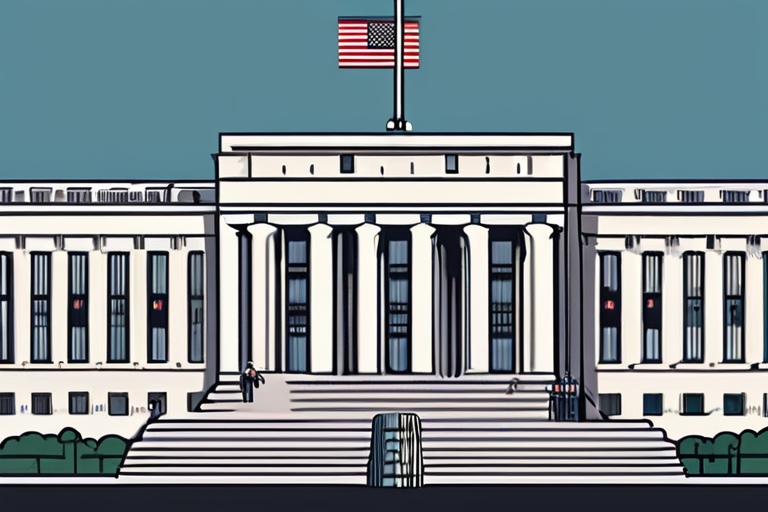When Washington Steps Back: What Deregulation Means for Corporate Leaders
As the US government rolls back regulations, companies are bracing themselves for a new era of uncertainty. The impact is already being felt, with some sectors experiencing significant financial losses and others seeing opportunities for growth.
According to a recent report by the Securities Industry and Financial Markets Association (SIFMA), the total value of deregulatory actions taken by the Trump administration has reached $85 billion, with an estimated 1,600 regulations repealed or modified. This trend is expected to continue under the Biden administration, with some analysts predicting that up to 20% of all federal regulations could be rolled back in the next two years.
Company Background and Context
The impact of deregulation varies widely depending on the industry and company. For example, companies in the energy sector are benefiting from reduced regulatory burdens, while those in the financial services industry are facing increased scrutiny over compliance issues.
Take, for instance, ExxonMobil, one of the largest oil and gas companies in the world. With the repeal of the Clean Power Plan, a key component of former President Obama's climate change initiative, ExxonMobil has seen its costs decrease by an estimated $1 billion annually. Conversely, banks like JPMorgan Chase are facing increased regulatory pressure over their role in the 2008 financial crisis.
Market Implications and Reactions
The market is already reacting to the changing regulatory landscape. According to a recent survey by PwC, 60% of CEOs believe that deregulation will have a positive impact on their company's growth prospects, while 40% are concerned about increased competition from smaller, more agile firms.
Investors are also taking notice, with some analysts predicting that companies in highly regulated industries like finance and healthcare may see their stock prices decline as regulatory uncertainty increases. Conversely, sectors like energy and technology are expected to benefit from reduced regulatory burdens.
Stakeholder Perspectives
Corporate leaders are divided on the impact of deregulation. Some, like ExxonMobil's CEO Darren Woods, argue that reduced regulations will allow companies to innovate and grow more efficiently. Others, like JPMorgan Chase's CEO Jamie Dimon, warn that increased regulatory pressure could lead to a loss of trust in the financial system.
"It's not just about the rules," says Jane Sadowsky, an independent director on three global boards. "It's about the culture and values of the company. If you're not transparent and accountable, you'll lose the trust of your stakeholders."
Future Outlook and Next Steps
As the regulatory landscape continues to evolve, companies must adapt quickly to stay ahead. This means investing in compliance and risk management infrastructure, as well as developing a clear strategy for navigating the changing regulatory environment.
According to Jennifer Conn, partner and global chair of the securities litigation practice at law firm Paul Hastings, "Companies need to be proactive in managing their regulatory risks. This includes staying up-to-date on changes in regulations, investing in compliance training, and developing a robust risk management framework."
As the US government continues to roll back regulations, one thing is clear: companies must be prepared for a new era of uncertainty. By understanding the implications of deregulation and taking proactive steps to manage their regulatory risks, corporate leaders can position themselves for success in a rapidly changing business environment.
Sources
Securities Industry and Financial Markets Association (SIFMA)
PwC
ExxonMobil
JPMorgan Chase
Jane Sadowsky, independent director on three global boards
Jennifer Conn, partner and global chair of the securities litigation practice at law firm Paul Hastings
*Financial data compiled from Fortune reporting.*



 Hoppi
Hoppi

 Hoppi
Hoppi

 Hoppi
Hoppi

 Hoppi
Hoppi

 Hoppi
Hoppi

 Hoppi
Hoppi











